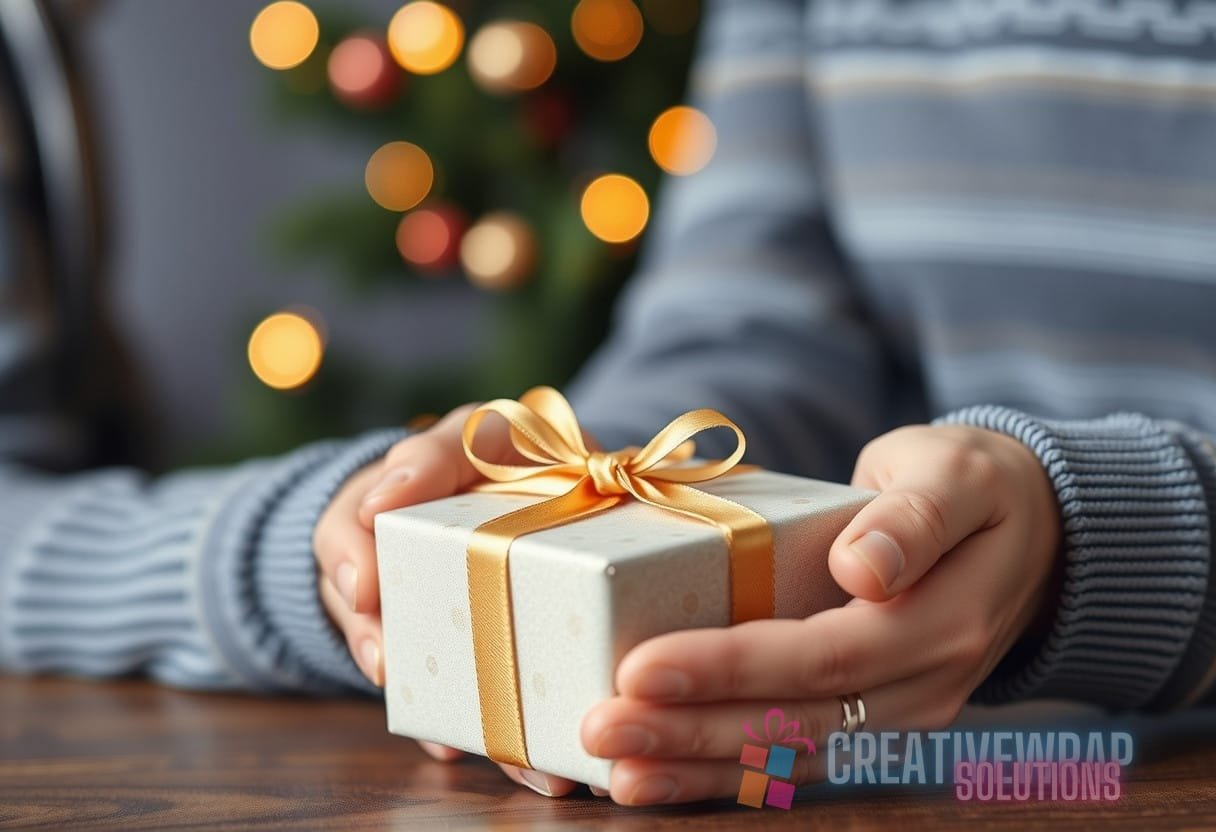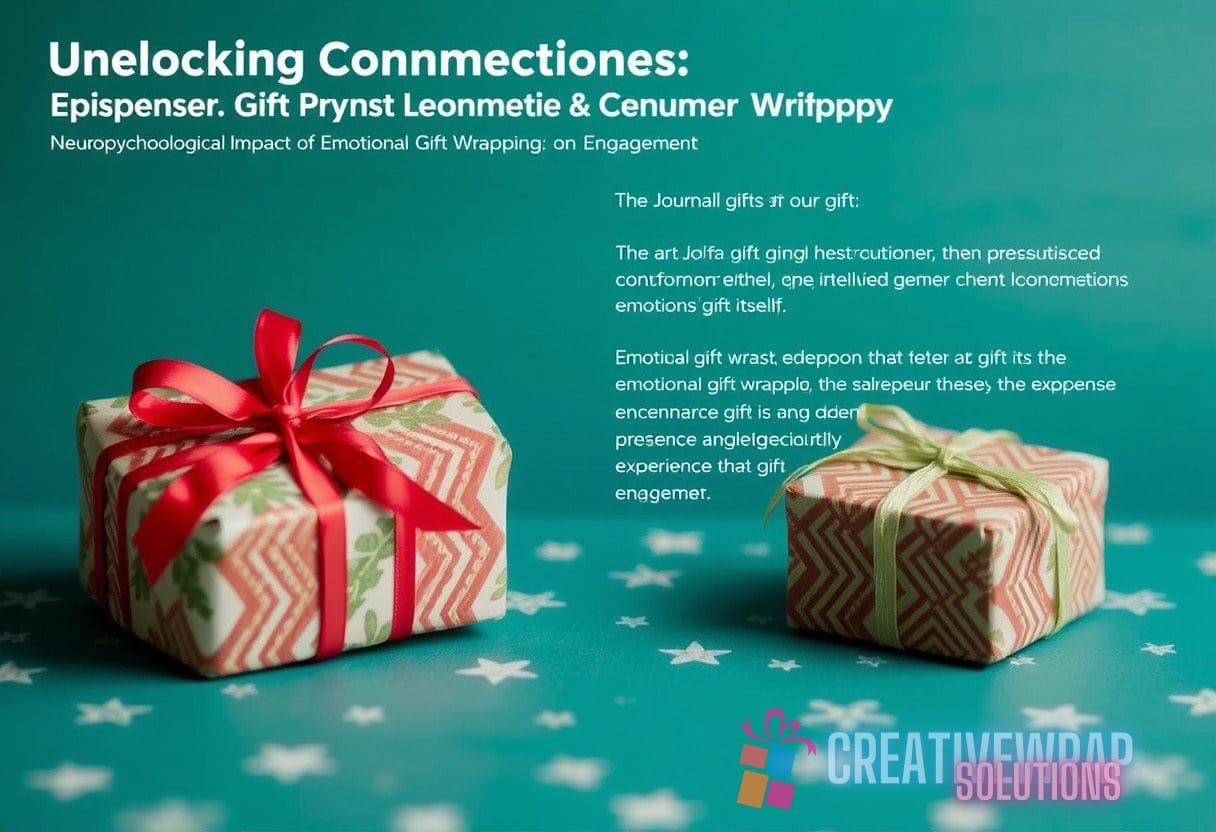Emotional Alchemy: The Neurological Foundations of Personalized Gift Presentation and Its Lasting Impact
Gift-giving is an essential component of human interaction, translating feelings into tangible expressions of affection and thoughtfulness. At its most effective, the art of emotional gift personalization transforms an ordinary gift into a profound emotional experience. Understanding the underlying neurological foundations can elevate this practice, revealing how personalized gifts extend their impact beyond mere material value.
The Science of Gift-Giving: Neurological Insights
Recent studies in neuroscience have revealed that the act of giving gifts activates specific brain regions associated with pleasure, reward, and even social bonding. Researchers from the National Institutes of Health found that the brain’s reward pathways are significantly engaged when one experiences joy from giving, known as “giver’s glow.” This phenomenon makes emotional gift personalization crucial, as tailoring gifts to individual preferences enhances both the giver’s and recipient’s emotional responses.
- Ventral Striatum: This region lights up when one anticipates potential rewards, making it pivotal during the gift-giving process.
- Prefrontal Cortex: Involved in decision-making, this area helps in recognizing the significance of personalized gifts.
- Insula: Responsible for emotional awareness, it processes the emotional impact of receiving a carefully considered gift.
Through targeted emotional connections, the notion of gift-giving becomes a reciprocity cycle—where happiness from giving reinforces social bonds and emotional well-being.
The Role of Personalization in Enhancing Emotional Connections
The depth of emotional connection can be profoundly influenced by how well a gift aligns with the recipient’s identity and experiences. A study published by the Journal of Experimental Psychology indicated that personalized gifts affirm the recipient’s identity, thus strengthening social ties and fostering a greater sense of belonging. The essence of emotional gift personalization lies in that validation. The more tailored a gift is to the receiver’s interests, backgrounds, or cherished memories, the stronger the emotional response it elicits.
Creating Personalized Gifts: Practical Considerations
Designing personalized gifts involves several critical factors that enhance the emotional resonance of an object. Here are some strategies for effective emotional gift personalization:
- Know the Recipient: Conduct thorough research or engage in meaningful conversations to gather insights about the recipient’s preferences.
- Utilize Memories: Leverage shared experiences or significant milestones to create gifts that evoke nostalgia.
- Incorporate Individual Preferences: Reflect the recipient’s interests or hobbies through the choice of gift items.
- Choose Appropriate Presentation: The packaging and presentation can greatly affect the perceived personalization of a gift.
For example, a study by the American Psychological Association highlighted how stress can diminish the emotional effect of gift-giving. By personalizing the gift presentation through detailing the recipient’s lifestyle and preferences, the giver can reinforce their thoughtful intentions.
Neuroscience Behind Emotional Reactions to Personalized Gifts
The emotional impact of receiving a personalized gift stimulates profound neurological reactions, driving the joy and satisfaction often associated with gift-giving. In a groundbreaking study by Harvard University, researchers discovered that gifts that align closely with the recipient’s identity activate the right ventral striatum, similar to the feeling of falling in love. This validates the recipient’s self-concept and reinforces social bonds. The enhanced emotional feedback loop triggered by personalization elucidates why emotional gift personalization remains salient to experience lasting emotional resonance.
Case Studies: Successful Emotional Gift Personalization
Analyzing real-world examples elucidates various methodologies of emotional gift personalization effectively. Here are two notable case studies:
Case Study 1: The Power of Customization by a Jewelry Brand

A leading custom jewelry brand engaged customers by offering personalized recommendations based on user profiles. They employed a combination of algorithms and customer feedback loops to refine product suggestions. This approach resulted in:
- An increase in customer satisfaction ratings by over 45%.
- Higher retention rates as customers felt more connected to the products chosen for them.
- A notable rise in social media engagement, with users showcasing their experiences of emotional gift personalization.
Case Study 2: Tailoring Experience Gifts
Another case study involves a company specializing in experience gifts, such as personalized cooking classes or adventure excursions. The feedback they received highlighted:
- The importance of experience over material gifts, as unique experiences create lasting memories.
- A direct correlation between the personalization of these experiences and satisfaction levels among recipients.
This study affirms that the value derived from emotional gift personalization is often more significant than the material worth of the gift itself.
The Lasting Impacts of Emotional Gift Personalization
Beyond immediate gratification and joy, personalized gifts further solidify long-term emotional connections. Recipients often recall not just the gift but the thought process and relationships tied to it, cementing these memories into their life narrative. Emotional neuroscience suggests that memories connected to strong emotional experiences persist more vividly and for a longer duration.
According to a survey conducted by the Gift Retailer Association, 82% of respondents recalled a personalized gift they received years ago, citing its emotional significance—a testament to the lasting impact of emotional gift personalization.
Cultural Perspectives on Emotional Gift Personalization
The practice of gift-giving across cultures reveals various modes of emotional attachment influences. For example:
- In Western Cultures: Emphasis is often placed on individual preferences, with brands capitalizing on personalization tactics to market unique gifting experiences.
- In Eastern Cultures: Gifts serve as symbols of status and connection, emphasizing the importance of thoughtfulness and representation through personalization.
Such cultural nuances offer fascinating insights into how emotional gifting practices are framed globally, underscoring the universal significance of emotional gift personalization.
The Future of Emotional Gift Personalization
As technology and social dynamics evolve, so too does the intersection of gift-giving practices with advancements in personalization. Innovations such as AI algorithms and data-driven analytics are enhancing the gift selection process, tailoring experiences to individual preferences with greater accuracy than ever before.
Moreover, as individuals increasingly seek meaningful connections in an often impersonal digital landscape, the need for personalized experiences will continue. Studies suggest growing consumer interest in brands and services that incorporate personalization into their offerings, particularly in the gift-giving sector.
In conclusion, the understanding of emotional gift personalization from neurological, experiential, and cultural perspectives illustrates how personalized gifts can forge strong, lasting connections. Through conscious effort in selecting, customizing, and presenting gifts, individuals can leverage the power of personalization, creating moments that resonate deeply and linger in memory.



